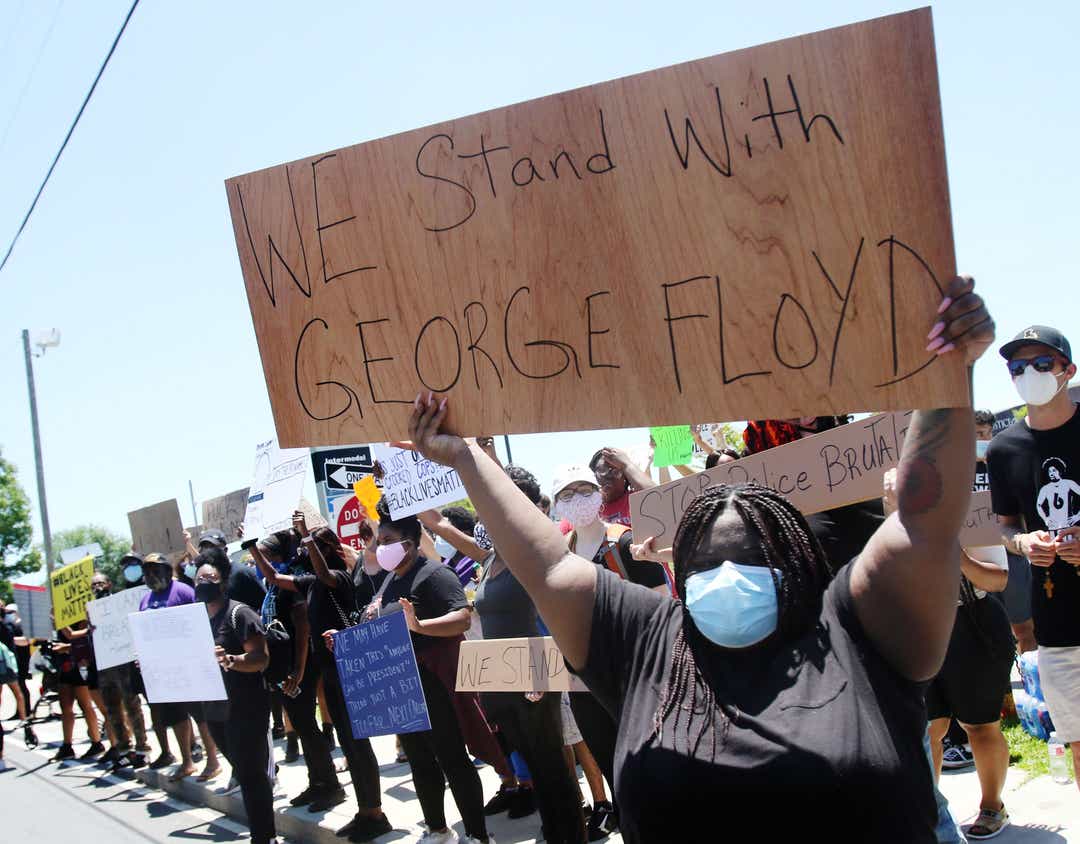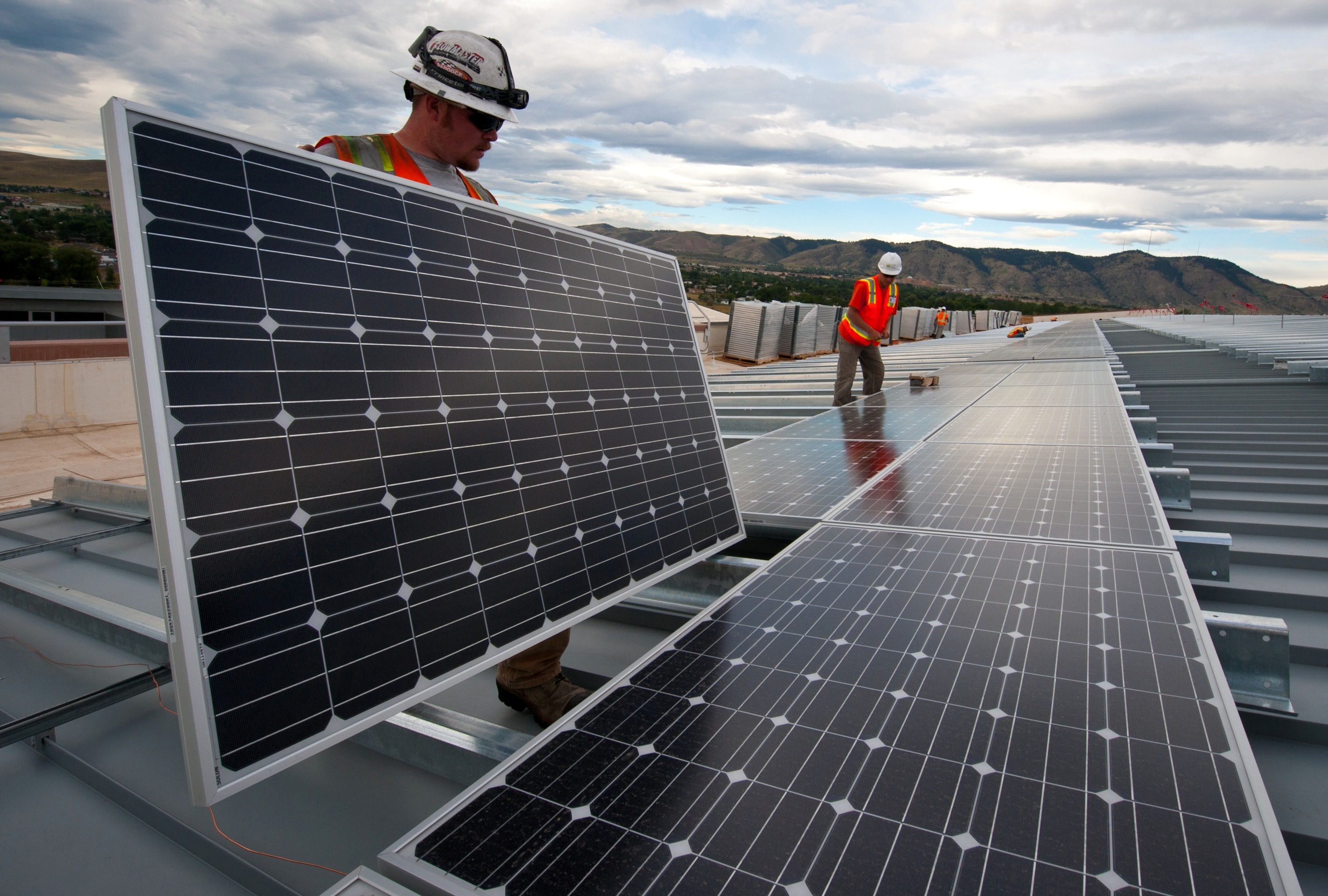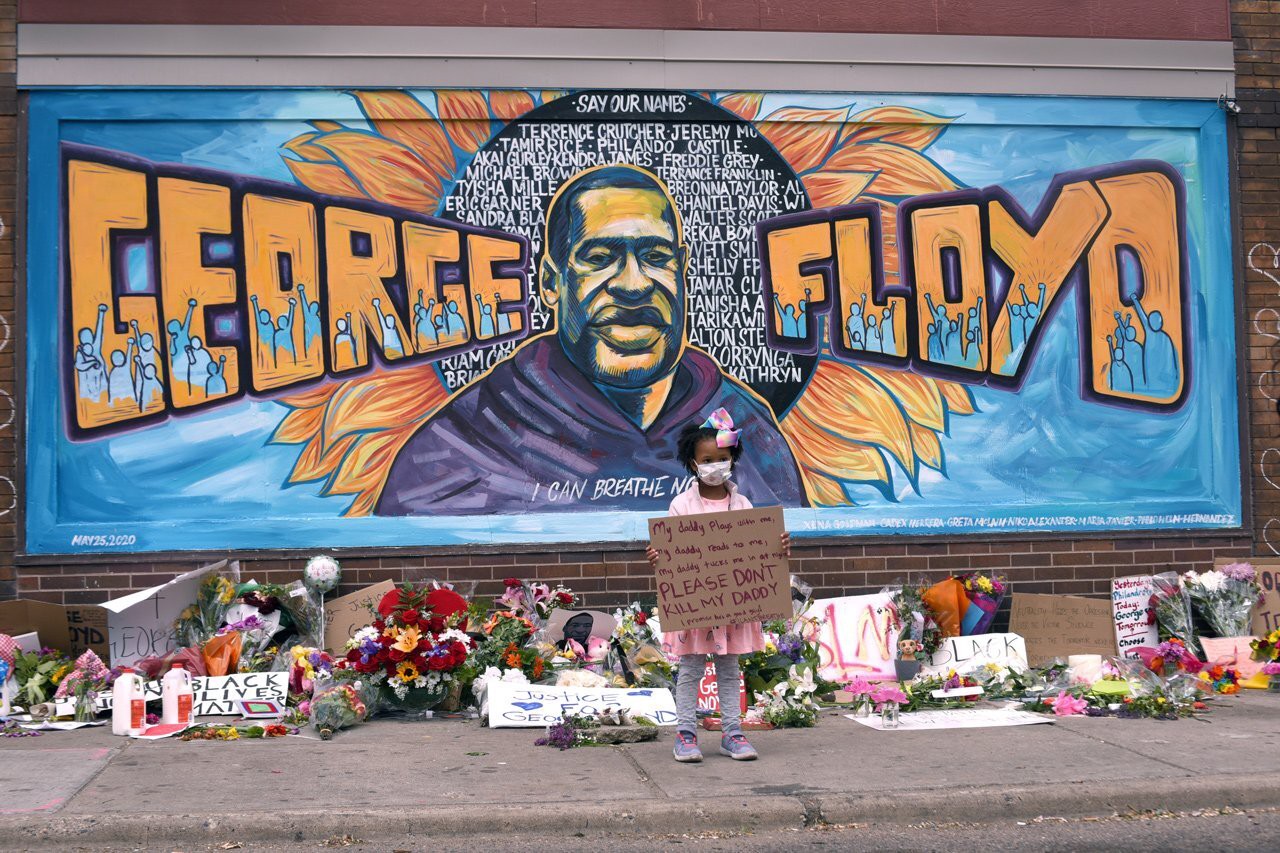Talking Points: May 2020
Posted on 03 Jun 2020 Categories: Blog, Climate crisis, Coronavirus, Talking Points
by Rethinking Poverty
As the UK takes the first faltering steps out of lockdown, the focus is more than ever on the ‘what next?’ question. Will the coronavirus crisis lead to a fairer society? Business as usual or a new normal? What changes are likely to become permanent? These are some of the questions we look at in this month’s Talking Points.
We also look briefly at the worldwide Black Lives Matter protests that have followed the shocking killing of George Floyd by a white police officer in Minneapolis, which has dominated the news in the last week of May. While it is too soon to say much about all this will lead to, it seems clear that what links Floyd’s killing and the way the coronavirus pandemic – and indeed the climate crisis – is affecting different groups, is inequality.

How to achieve justice for the marginalised?
What role, if any, can protest play in bringing about change and addressing injustice? Writing for Medium, Barack Obama insists on the need for voting and participation in electoral politics as well as (non-violent) protests and direct action if we want to see change. While acknowledging that ‘throughout American history, it’s often only been in response to protests and civil disobedience that the political system has even paid attention to marginalized communities’, eventually, he says, ‘aspirations have to be translated into specific laws and institutional practices — and in a democracy, that only happens when we elect government officials who are responsive to our demands.’
In a Guardian opinion piece, Rebecca Solnit quotes Martin Luther King, who ‘famously called riots “the voice of the unheard” … When they riot, the black people most impacted by police brutality and by four centuries of poverty, dehumanisation and deprivation of basic rights and equality, are more like people trapped inside that burning house trying to break out’ – though she points out that ‘most successful recent revolutions have, in fact, been largely nonviolent’.
Will the coronavirus crisis lead to a fairer society?
‘I made millions out of the last debt crisis. Now the wealthy stand to win again,’ says Gary Stevenson, a former interest rate trader. ‘I can tell you what the rich will do with their new piles of cash. They will buy more stocks, bonds, gold, land and houses. I know this because they did exactly that when they received large amounts of newly printed money after the 2008 and 2011 crises. I know this because I’m doing it myself.’ Apparently American billionaires have already got $434 billion richer during the pandemic.
Meanwhile the UK has seen 2 million claims for welfare support during the pandemic, while nearly one in four UK workers were furloughed in the fortnight up to 5 May. A week later, the Mirror revealed that NHS coronavirus ‘heroes’ may face the betrayal of a two-year pay freeze in the predicted recession. In the US, over 40 million people – 1 in 4 US workers – have filed for unemployment benefits since the pandemic took hold.
Covid-19 is a ‘wake-up call’ to build a fairer society, says billionaire JP Morgan boss Jamie Dimon. But it’s too early to say if it will lead to fairer societies, says French economist Thomas Piketty. ‘At the very least, I think, it will reinforce the legitimacy of public investment in healthcare. But it could also have a completely different kind of impact. Historically, for example, pandemics have triggered xenophobia and nations turning inward.’
Business as usual or a new normal?
Competing camps are now locked in debate between those who want to get the economy moving again, no matter how, and those who see the crisis is a chance to accelerate the transition to a cleaner economy. Economist Jean Pisani-Ferry, a former aide to President Macron of France, describes this as the struggle that ‘will define the post-pandemic world’.
‘Make sure that the investment we make takes us into the new economy,’ Frans Timmermans, executive vice president of the European Commission, told the European Parliament. ‘Normal’ life failed us, argues Guardian columnist John Harris, and the coronavirus crisis gives us the chance to rethink a new economy. Humanity must take this chance to find a new ‘normal’ – and safeguard our planet, say Elizabeth Maruma Mrema, Ibrahim Thiaw and Patricia Espinosa Cantellano, also in the Guardian.
Is it the right time to argue for radical change, asks Kelly Grehan, writing for Labourlist. Yes, she says. ‘Now is the time for us to argue for the kind of society we want – because if we don’t, others will step in. The example of New Orleans after Hurricane Katrina must serve as a lesson to us all.’ She cites Naomi Klein, who coined the phrase ‘shock doctrine’ to describe the way governments use the public’s disorientation following a collective shock to push through radical pro-corporate measures. ‘We must not let that happen here when the lockdown ends.’
Klein herself has already issued a warning about how big tech plans to profit from the pandemic. ‘Public schools, universities, hospitals and transit are facing existential questions about their futures,’ while tech companies are carrying out a ‘ferocious lobbying campaign for remote learning, telehealth, 5G and driverless vehicles’. Their ‘Screen New Deal’ will leave no money for urgent public priorities, she says, ‘never mind the Green New Deal that our planet urgently needs’.

‘There is revolution in the air now, but history shows the old order will fight back,’ warns Nesrine Malik. ‘There is a naivety in the hope that once ideas are discussed and made popular, they will permeate policymaking and bring about change.’ She cites the 2008 financial crisis as ‘the clearest cautionary tale’. ‘Yes, we must imagine the new world that needs to come out of this crisis: but it will not come to pass without a fight.’
Guardian economist Larry Elliott agrees. ‘Opponents of change don’t need to do anything; they simply need to wait for inertia to kick in,’ he says. ‘Those who want a different sort of economy need to start somewhere.’ He suggests a trial in one of the UK’s big cities, say Manchester or Glasgow, to see whether a GND does create jobs, cut emissions and generate a new wave of profitable environmental innovation. ‘The world wasn’t ready for a Green New Deal in 2009,’ he says. ‘Today it may be.’
Clamour for a green recovery from quarters where you’d expect it …
Progressive think-tanks CLES and the Democracy Collaborative are arguing that community wealth building and democratic, pluralistic ownership of the economy are crucial to any fair reconstruction programme after the Covid-19 crisis, while Anne Velenturf and Phil Purnell advocate a sustainable circular economy. An Oxford University study finds that green projects create more jobs, and deliver higher short-term returns and long-term cost savings, than traditional stimulus spending. The recovery should have a green focus, argues the Committee on Climate Change, the government’s climate advisers.
The Labour Party is drawing up a radical green recovery plan, which shadow business secretary Ed Miliband says should include creating a ‘zero-carbon army of young people’, while the Trades Union Congress wants to see a national recovery council bringing together government, unions and employers to create a greener and fairer economy. More than 200 organisations representing at least 40 million health workers – about half of the global medical workforce – have signed an open letter to the G20 leaders calling on them to ensure a green recovery that takes account of air pollution and climate breakdown.
The Spanish government has presented a draft climate law which it hopes will shape the recovery effort after Covid-19. Among other things, it bans all new fossil fuel extraction permits with immediate effect. The European Commission has produced a biodiversity strategy aiming to protect 30 per cent of its land and seas by 2030, which it says will be ‘a central element’ of the EU’s recovery efforts post Covid-19. Of the EU’s proposed €750 billion recovery fund, a quarter has been earmarked for climate action, while a ‘do no harm’ clause in principle rules out environmentally damaging investments.

… and from quarters where you wouldn’t
City veteran Lord Turner, head of the CBI in the late 1990s and now chairman of the Energy Transitions Commission, is adamant that investment in green fuel would create jobs and give Britain’s post-coronavirus economy a much-needed boost. The Economist is also arguing that ‘Covid-19 creates a unique chance to steer the economy away from carbon at a much lower financial, social and political cost than before …. Getting economies back on their feet calls for investment in climate-friendly infrastructure that boosts growth and creates new jobs.’ In a separate article, the Economist argues for a complete transformation of the world’s energy system.
On 13 May, over 330 US businesses, including Dow, General Mills, Mars, Microsoft, Nike, Salesforce, Visa and others, met virtually with Democratic and Republican members of the US Congress to call for economic recovery that addresses climate change so we can #BuildBackBetter.
Continued emphasis on growth
Progressive think-tanks aside, there continues to be a general assumption that a greener economy means green growth. Labour shadow chancellor Anneliese Dodds, speaking at the launch of a TUC report, compares the post-conflict decade of social investment after the Second World War, which created growth of 3.3 per cent, with a decade of austerity after the banking crash which resulted in growth of 1.9 per cent.
However, there is a strong argument that infinite growth in a finite world is not possible. The end of growth, and the idea of abandoning GDP as a measure of the economy, was the topic of a webinar on 11 May marking the launch of Positive Money’s new report The Tragedy of Growth. A recent poll shows that a majority of Britons believe that measures of the UK’s quality of life should replace the publication of purely economic indicators. The Wellbeing of Future Generations Bill, introduced in the House of Commons on 24 March by Caroline Lucas, aims to put protection of the wellbeing of people and communities at the heart of UK policy making.
What changes will become permanent?
It seems likely that some changes in the way people work will persist after the pandemic. Home working and virtual meetings seem likely to carry on to some extent. Having sent its employees home in March, Facebook has said it will begin by allowing certain new hires to work remotely, and then allow current employees to apply for permission to do so. New Zealand prime minister Jacinda Ardern has flagged up a four-day working week as a way to rebuild the country after Covid-19. A strong case has also been made for some sort of income guarantee, both in the UK and in Europe, and this seems likely to remain part of the conversation.
The area where we should probably make no assumptions is the environment. Despite steep falls in carbon emissions and air pollution and revivals of the natural world, this is ‘nothing to celebrate’, says Fatih Birol, executive director of the International Energy Agency. ‘It is not the result of policy. This decline will be easily erased if the right policy measures are not put in place.’ In addition, the changes have come at a heavy price, especially for the most vulnerable. ‘Clear skies bring little cheer at the food bank,’ writes Fiona Harvey. ‘Birdsong might lift the heart, but it won’t pay the rent.’
This point – what one could call the unity of injustice and inequality – is underscored by the ongoing waves of Black Lives Matter protests. As Peter Kalmus tweeted on 30 May, ‘Here’s why race justice and climate justice are one and the same: The oppressive extractive plutocracies that colonize and kill black bodies and colonize and kill our planet are one and the same.’

Want to keep up-to-date with our coronavirus coverage? Sign up to our newsletter.
Posted on 03 Jun 2020 Categories: Blog, Climate crisis, Coronavirus, Talking Points
